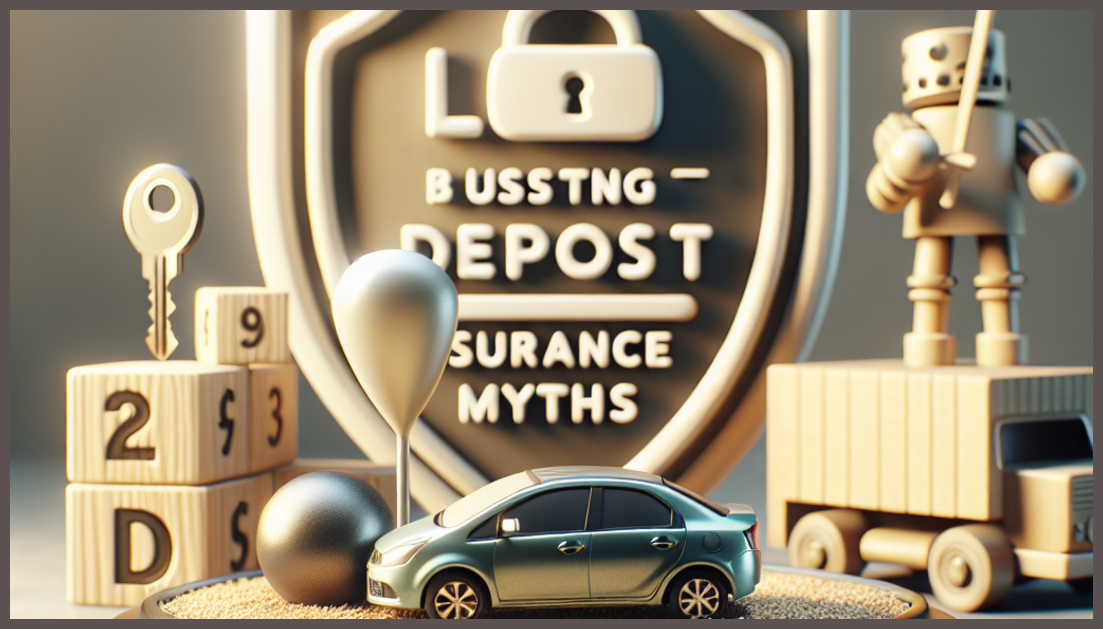Navigating the world of car insurance can be overwhelming, especially with various options available. One option that often raises questions is low deposit car insurance. This insurance type allows drivers to begin their coverage without paying a significant amount upfront. However, many misconceptions surround it that can mislead potential buyers. In this article, we will debunk these myths, providing clarity to assist car insurance consumers in making informed choices while eliminating any lingering doubts about low deposit options.
As with any financial product, understanding what low deposit car insurance entails is crucial. The concept suggests that lower upfront payments equate to lower quality or inadequate coverage, which is a misconception. It’s essential to note that while the deposit amount may be less, it does not necessarily reflect the extent of coverage available. To explore specific options available in the market today, check out various low deposit car insurance plans to see what is possible.

Common Misconceptions about Low Deposit Car Insurance
Low deposit car insurance often attracts skepticism, with many believing that a lower upfront cost means skimpier coverage. Let’s address some prevalent myths to clarify any uncertainty.
- Myth 1: Lower Deposits Mean Limited Coverage Options
- Myth 2: Low Deposit Policies Have Complicated Claims Processes
- Myth 3: If It’s Cheap, It’s Not Reliable
- Myth 4: Only High-Risk Drivers Opt for Low Deposit Insurance
- Myth 5: Policies With Low Deposits Exclude Essential Coverage
These misconceptions often confuse consumers and deter them from considering viable options for low deposit car insurance. Understanding that many reputable insurers offer solid coverage despite the lower initial fees is essential.
What You Need to Know About Coverage
Many people tend to equate insurance premiums directly with high-quality coverage. This can lead to the error of assuming that policies with low deposit options automatically reflect lesser protection. However, it’s important to analyze the policy details to get a fuller picture of what’s covered. Coverage often includes:
- Liability coverage for bodily injury and property damage
- Personal injury protection (PIP) to cover medical expenses
- Collision and comprehensive coverage for vehicle repairs or replacement
- Uninsured/underinsured motorist coverage
While prices may vary, driving factors like personal driving history and location significantly influence your insurance cost. To understand how rates may change based on various factors, view detailed insights.
Affordability and Options to Consider
Another key point to consider is the affordability of low deposit car insurance. With many people looking to cut back on expenses, finding affordable options without compromising coverage is attractive. One way to ensure you secure good coverage at an affordable rate is to shop around and compare various policies. Some options might include:
- Flexible payment plans that spread costs over several months
- Discounts for safe driving or maintaining a clean driving record
- Bundling options that can provide better deals when combining with other insurance types
While generally perceived as a less conventional choice, it’s crucial to consider these plans seriously, as they may offer the same level of coverage as other insurance types that require a more considerable upfront cost.
What to Look for in Low Deposit Car Insurance Policies
When evaluating low deposit car insurance, shoppers should focus on specific facets to ensure they’re getting the best possible coverage. These aspects include:
- Understanding terms and conditions of coverage
- Checking premiums for different vehicles and personal risk profiles
- Researching customer reviews specific to claims experiences
Engaging with an insurance agent familiar with the nuances of low deposit options can also help clarify potential coverages and reduce uncertainty that often accompanies these decisions.
Insights That Shape Decisions
A critical aspect affecting car insurance purchasing decisions is the fear surrounding claims processes. A survey indicates that a significant portion of the populace has concerns that cheaper policies will lead to more difficulties in claims processing. A consumer noted, “I was hesitant to pursue low deposit insurance because I thought filing a claim would be more complex, but I was pleasantly surprised at how straightforward the process was even with lower premiums” [1]. This sentiment illustrates that when customers are informed and reassured about coverage options, they can approach low deposit insurance without hesitation.
FAQ
Can I get full coverage with low deposit car insurance?
Yes, many low deposit plans offer full coverage options, including liability, collision, and comprehensive, so it’s important to review the specific policy details.
Are there any hidden fees with low deposit insurance?
While most insurers are transparent about their costs, be sure to read the fine print before signing up, as some may have additional fees.
Conclusion
Understanding the truths surrounding low deposit car insurance is crucial for potential buyers eager to find affordable coverage without sacrificing quality. While some may believe that lower upfront costs lead to limited options or complicated claims processes, we have highlighted that this is not necessarily the case. By being informed and scrutinizing policy specifics, consumers can find favorable insurance plans regardless of deposit size. If you’re ready to explore your options and see how you can secure the right coverage, review your insurance needs today and assess the best plans available.
References
- https://www.khanacademy.org/humanities/economics-home/financial-literacy/money-saving/budgeting-tools/a/how-to-find-affordable-car-insurance
